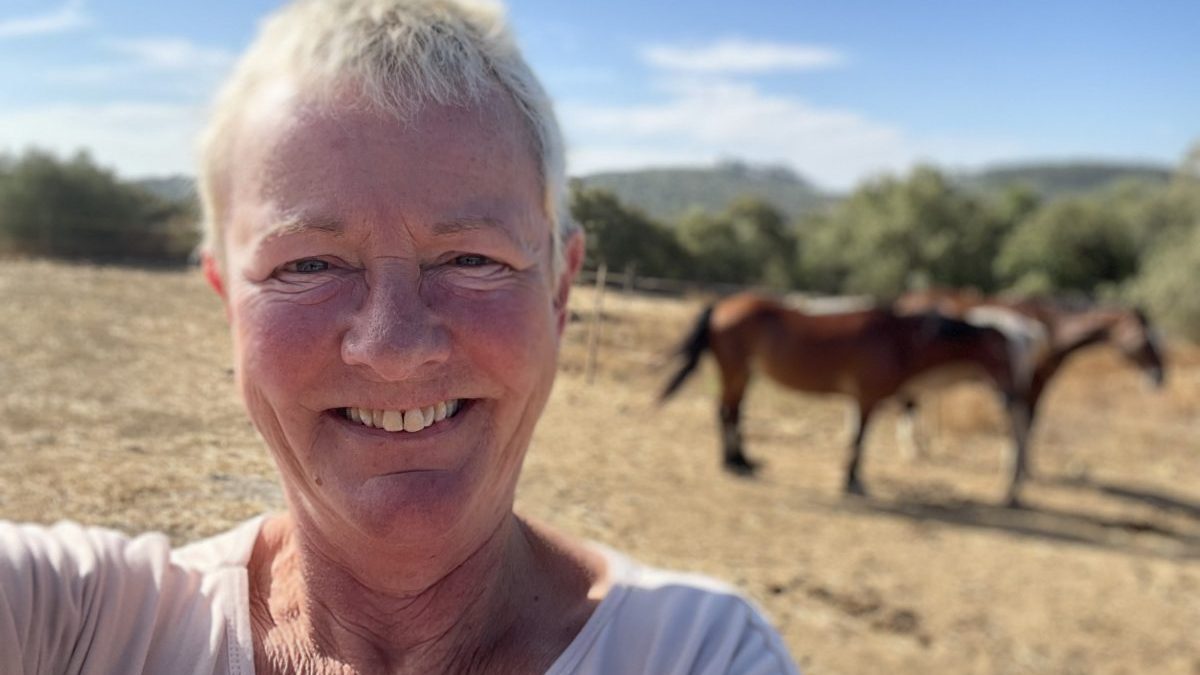Sarah Wellband spent years in the finance industry and is sharing her top tips for the younger generation
Sarah Wellband, 62, says there are lots of things about money that she wishes she had known 40 years ago.
Now living in Portugal and running her own business, she spent several years of her career in the finance industry as a mortgage adviser, and picked up several need-to-knows she would flag to 20 and 30-somethings.
Her tips come as new polling reveals the biggest financial regrets that over-60s have, and would urge younger generations to avoid.
Figures compiled by Nottingham Building Society show more than a third (35 per cent) of over-60s wish they had put more into a pension.
Below are the tips Sarah, who grew in Lincolnshire and now works as a remedial hypnotherapist, would pass on through her own experience.
Pay into a pension as early as possible – it could earn more than you do
“Invest in your pension as early as you can. The pot I started in my 30s earned more than I did last year, even though I stopped contributing in 1995,” Sarah says.
She says she wishes she had started paying more into her pension earlier but at the time she could not afford to.
You get tax relief on your pension at your marginal rate, meaning there are large benefits to doing so.
The earlier you pay in, the more you benefit from compound growth, whereby your pension is invested and grows, and then you get further growth on the already grown pot.
“I think pensions are the best thing to invest in. I know it seems far away when you are in your 30s, but a pension really is the best place to put your money,” she says.
Make sure you have the right type of life insurance or cover
“Make sure, if you have dependants, you have cover that will pay out for them,” Sarah says.
“If you were taken out of the picture, you need to replace that income, but a lot of people neglect it,” she says.
“For me personally, I have my partner and no dependants, so we’ve left everything to the other. I’ve decided there’s no point in having really enhanced cover that is obviously much more expensive. That extra money can go into savings instead,” she says.
Different insurance products that cover your earnings and wealth are available from insurers, but to make sure you are picking the right one for you, it may be worth seeking financial advice.
Sleep before deciding on a major expenditure
“This is based on my personal experience, yes,” she says.
“It can be anything, but if you are thinking, I’m down, let’s book a holiday, you often can wake up and think, I should not have done that,” Sarah adds.
“Don’t do anything on a whim, put your logical hat on first, and often sleeping helps that.”
This chimes with research from Nottingham Building Society, which shows that more than a quarter (26 per cent) of over-60s wish they had spent less on things they don’t need.
Overpay your mortgage when you can
Mortgage overpayments can be a good option at the moment as homeowners look to offset the impact of higher interest rates.
You don’t pay interest on the amount you overpay, and the money you save often beats the returns possible in savings.
But you should check the terms of your provider first, to ensure it allows overpayments and you won’t face a charge.
Sarah knows first-hand how valuable this can be from her work as a mortgage advisor.
“The more you pay in at the start, the faster the amount you owe comes down , because you’re paying off capital rather than interest,” she says.
“And if you don’t have a mortgage, save for a deposit instead. The faster you can get on to the property ladder the better,” she adds.

